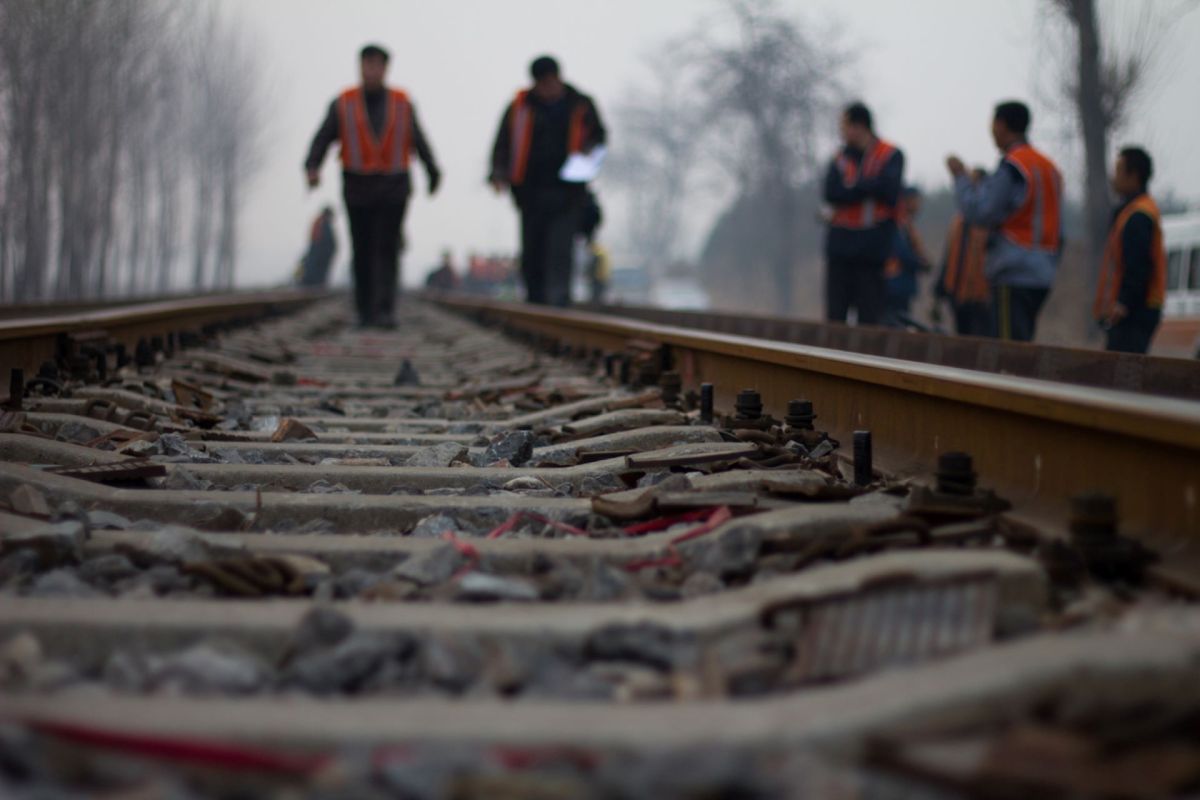Workers at an Erie, Pennsylvania, plant that makes locomotives for Wabtec Corporation are striking, and one of their conditions might surprise you: They're rallying to shift their production practices to greener technology.
This condition may seem surprising because the locomotives the plant makes generally run on diesel fuel, something not often used in the same sentence as "green."
The 1,400 striking workers are represented by the United Electrical, Radio, and Machine Workers of America Union (UE) and have been on strike since late June, but contract renegotiations started back in April, reported Grist.
Scott Slawson, the president of UE's Erie chapter, told Grist that his union and the train operator union are pushing for greener technology and higher environmental standards industry-wide. He further said that it's a passionate fight for them, and they're in it for the long haul.
Compared to both cars and planes, trains aren't massive polluters, but every bit of reduction of toxic planet-warming gases counts. This is especially true considering the transportation industry overall is responsible for the highest amount of polluting, heat-trapping gases, accounting for 29% of total U.S. air pollution, per the Environmental Protection Agency.
Also, trains release pollutants from diesel fuel in the cities and towns where they operate, heightening the risk of cancer from air pollution and creating other health risks.
To stop this pollution, train companies would switch to pollution-reducing locomotives — called Tier 4 locomotives made by companies like Wabtec — that would cut pollution by a whopping 70%, Grist reported.
Considering several big rail companies have made climate pledges, you'd think switching to these cleaner, greener locomotives would be quick, but the opposite is true.
Slawson and the striking workers want to speed up the transition and are saying so loud and clear.
"It's not just about building the locomotive; it's about requiring the rail industry as a whole to make this switch," Slawson told Grist. "Even though rail is one of the least polluting things out there, there still has to be a push to adopt the newest technologies."
In the same article, Liz Ratzloff, co-executive director of the Labor Network for Sustainability, said: "[The Wabtec strike] shows the potential power of workers, communities, and the labor movement in addressing the climate crisis where companies are uninterested and unwilling, and the government is seemingly unable."
Join our free newsletter for cool news and actionable info that makes it easy to help yourself while helping the planet.









